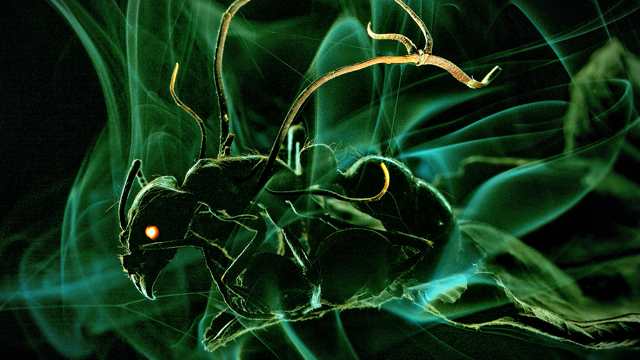What If Your Body Wasn’t Yours? Discover the Horrifying World of Zombie Parasites!
Imagine waking up one day to realize that your thoughts and actions are not entirely your own. What if, unbeknownst to you, a parasite was controlling your behavior for its own sinister purposes? This nightmarish scenario is not just the stuff of horror movies; it’s a reality in the natural world, where certain parasites manipulate their hosts in astonishing ways.
Join photographer Anand Varma as he explores this eerie phenomenon, revealing how these mind-controlling organisms operate and the implications they have for our understanding of life on Earth.
The World of Zombie Parasites
Zombie parasites are organisms that take control of their hosts, often leading them to act in ways that benefit the parasite’s survival and reproduction. One of the most notorious examples is the Ophiocordyceps unilateralis, a fungus that infects ants. Once infected, the ant climbs to a high point, where it clamps onto a leaf or twig. The fungus then kills the ant and sprouts from its body, releasing spores to infect other ants below. This gruesome cycle ensures the fungus’s propagation while effectively turning the ant into a “zombie.”
Another fascinating case involves the Toxoplasma gondii parasite, which primarily infects cats but can also manipulate the behavior of rodents. Infected rodents lose their natural fear of cats, making them more likely to be caught and eaten. This benefits the parasite, as it can only reproduce in the intestines of cats. Research has shown that Toxoplasma can alter the brain chemistry of its hosts, leading to changes in behavior that serve the parasite’s life cycle.
Anand Varma’s Exploration
Photographer Anand Varma has dedicated his work to documenting these bizarre interactions in nature. Through stunning visuals and compelling storytelling, he sheds light on the complex relationships between parasites and their hosts. Varma’s work emphasizes the intricate balance of ecosystems and the often unseen forces at play. His photography captures the haunting beauty of these interactions, inviting viewers to ponder the implications of such manipulation.
In his exploration, Varma raises critical questions about the nature of control and autonomy in the animal kingdom. If parasites can hijack the behavior of their hosts, what does that say about the boundaries of free will? This inquiry extends beyond the natural world, prompting us to consider the potential for manipulation in our own lives.
The Broader Implications
The phenomenon of zombie parasites serves as a reminder of the complexity of life on Earth. It challenges our understanding of agency and control, suggesting that the line between host and parasite is often blurred. As scientists continue to study these relationships, they uncover new insights into the evolutionary strategies that drive these interactions.
Moreover, the implications of such manipulation extend to human health. For instance, Toxoplasma gondii has been linked to various psychological conditions in humans, including schizophrenia and behavioral changes. This raises questions about the potential influence of parasites on human behavior and decision-making.
Conclusion
The world of zombie parasites is a chilling reminder of the intricate and often unsettling relationships that exist in nature. As Anand Varma’s work illustrates, these mind-controlling organisms compel their hosts to act in ways that serve the parasites’ interests, blurring the lines between autonomy and manipulation.
As we delve deeper into the mysteries of the natural world, we are left to ponder the implications of these relationships—not just for the creatures involved, but for our understanding of life itself. What if, in some way, we too are influenced by unseen forces? The exploration of zombie parasites invites us to reflect on the complexities of existence and the hidden connections that bind us all.

